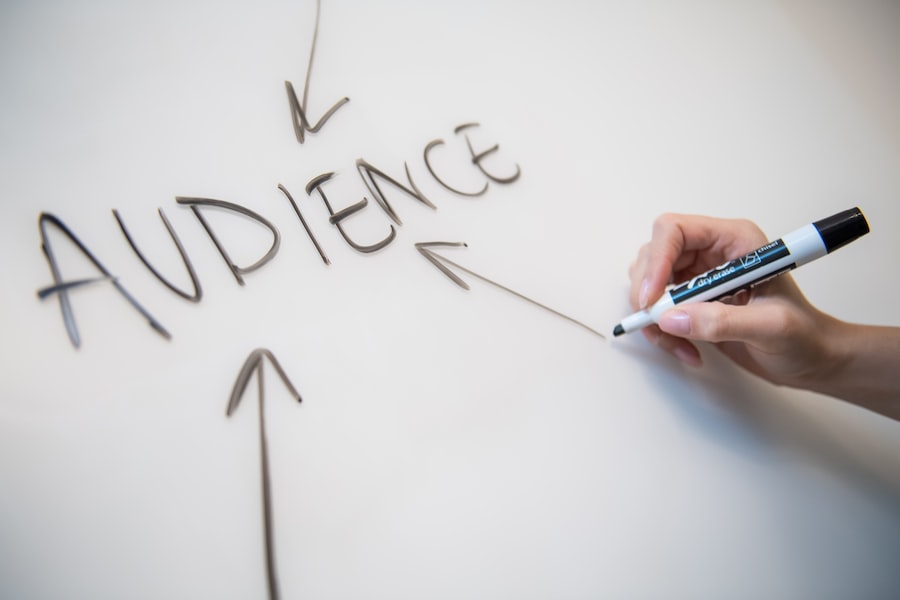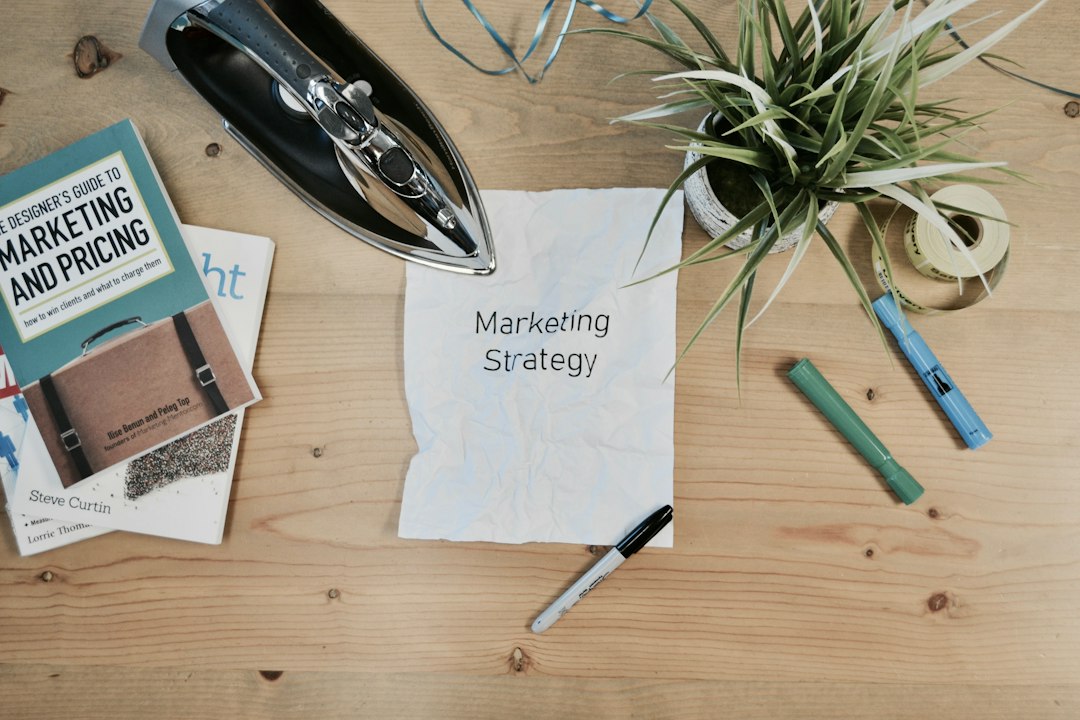In recent years, there has been a significant rise in the use of artificial intelligence (AI) in marketing automation. AI has become an integral part of marketing strategies, helping businesses streamline their processes, improve customer experience, and drive better results. With the increasing amount of data available and the need for personalized marketing campaigns, AI has emerged as a powerful tool to enhance marketing automation.
Key Takeaways
- AI is becoming increasingly prevalent in marketing automation.
- Marketing automation tools are being enhanced by AI to improve efficiency and accuracy.
- AI is revolutionizing marketing automation by enabling personalized and predictive marketing.
- The benefits of AI-powered marketing automation include increased productivity, cost savings, and improved customer experiences.
- Real-world examples of AI in marketing automation include chatbots, predictive analytics, and personalized content.
Understanding Marketing Automation Tools and AI
Marketing automation refers to the use of software and technology to automate repetitive marketing tasks and processes. It allows businesses to streamline their marketing efforts, save time, and improve efficiency. Marketing automation tools include email marketing platforms, customer relationship management (CRM) systems, social media management tools, and more.
AI, on the other hand, is the simulation of human intelligence in machines that are programmed to think and learn like humans. It involves the use of algorithms and data to enable machines to perform tasks that would typically require human intelligence. In the context of marketing automation, AI can analyze large amounts of data, make predictions, and automate decision-making processes.
How AI is Revolutionizing Marketing Automation
AI is revolutionizing marketing automation in various ways. One example is predictive analytics, where AI algorithms analyze historical data to predict future outcomes. This allows marketers to make data-driven decisions and optimize their campaigns for better results. AI can also automate lead scoring and nurturing processes by analyzing customer behavior and identifying the most qualified leads.
Another way AI is transforming marketing automation is through chatbots and virtual assistants. These AI-powered tools can interact with customers in real-time, answer their questions, provide personalized recommendations, and even complete transactions. This improves customer experience and engagement by providing instant support and assistance.
The Benefits of AI-Powered Marketing Automation
The use of AI in marketing automation offers several benefits for businesses. Firstly, it improves efficiency and productivity by automating repetitive tasks and processes. This frees up time for marketers to focus on more strategic activities and creative tasks. AI can also analyze large amounts of data quickly and accurately, providing valuable insights that can inform marketing strategies.
Secondly, AI-powered marketing automation enables enhanced personalization and targeting. By analyzing customer data and behavior, AI algorithms can create personalized marketing campaigns that resonate with individual customers. This leads to higher engagement, increased conversions, and improved customer satisfaction.
Lastly, AI in marketing automation can drive increased ROI and revenue. By optimizing marketing campaigns based on predictive analytics and personalized targeting, businesses can achieve better results with less effort. AI can also identify upselling and cross-selling opportunities, leading to increased revenue and customer lifetime value.
Use Cases: Real-World Examples of AI in Marketing Automation
Many companies are already leveraging AI in their marketing automation efforts. One example is Amazon, which uses AI algorithms to recommend products to customers based on their browsing and purchase history. This personalized recommendation engine has significantly increased sales for the e-commerce giant.
Another example is Netflix, which uses AI to analyze user behavior and preferences to recommend personalized content. This has led to higher user engagement and retention rates. Similarly, Spotify uses AI algorithms to curate personalized playlists for its users based on their music preferences.
In the retail industry, companies like Sephora use AI-powered chatbots to provide personalized beauty recommendations to customers. These chatbots can analyze customer data and provide tailored product suggestions, improving the overall shopping experience.
The Role of Machine Learning in Marketing Automation

Machine learning is a subset of AI that focuses on enabling machines to learn from data without being explicitly programmed. In the context of marketing automation, machine learning algorithms can analyze large amounts of data to identify patterns, make predictions, and automate decision-making processes.
One example of machine learning in marketing automation is customer segmentation. Machine learning algorithms can analyze customer data to identify different segments based on demographics, behavior, and preferences. This allows marketers to create targeted campaigns for each segment, improving the effectiveness of their marketing efforts.
Machine learning can also be used for dynamic pricing, where algorithms analyze market conditions, competitor pricing, and customer behavior to optimize pricing strategies in real-time. This ensures that prices are always competitive and maximize revenue.
Challenges and Limitations of AI in Marketing Automation
While AI has many benefits in marketing automation, there are also challenges and limitations to consider. One challenge is the need for high-quality data. AI algorithms rely on data to make accurate predictions and automate decision-making processes. If the data is incomplete, inaccurate, or biased, it can lead to poor results.
Another challenge is the ethical use of AI in marketing automation. AI algorithms can collect and analyze vast amounts of personal data, raising concerns about privacy and data security. Businesses need to ensure that they have proper consent and safeguards in place to protect customer data.
Additionally, there is a learning curve associated with implementing AI in marketing automation. Businesses need to invest in training their teams and acquiring the necessary skills to effectively use AI tools and technologies. This can be a time-consuming and costly process.
Best Practices for Implementing AI in Marketing Automation
To successfully implement AI in marketing automation, businesses should follow some best practices. Firstly, it is important to start with a clear strategy and goals. Define what you want to achieve with AI-powered marketing automation and align it with your overall marketing objectives.
Secondly, businesses should invest in high-quality data. Ensure that you have clean, accurate, and relevant data to feed into your AI algorithms. This will improve the accuracy of predictions and automate decision-making processes.
Thirdly, it is crucial to integrate AI with existing marketing strategies and processes. AI should complement and enhance your existing efforts rather than replace them entirely. Identify areas where AI can add value and integrate it seamlessly into your workflows.
Lastly, businesses should continuously monitor and evaluate the performance of their AI-powered marketing automation efforts. Regularly analyze the results, make adjustments as needed, and iterate on your strategies. AI is not a one-time implementation; it requires ongoing optimization and refinement.
Future of AI-Powered Marketing Automation
The future of AI in marketing automation looks promising. As technology continues to advance, AI algorithms will become even more sophisticated and capable of analyzing complex data sets. This will enable businesses to gain deeper insights into customer behavior and preferences, leading to more personalized and targeted marketing campaigns.
AI-powered chatbots and virtual assistants will also become more intelligent and human-like, providing even better customer experiences. Natural language processing (NLP) algorithms will enable chatbots to understand and respond to customer queries more accurately and contextually.
Furthermore, AI will play a crucial role in the integration of different marketing channels and touchpoints. It will enable businesses to create seamless omnichannel experiences for customers, where interactions are personalized and consistent across various platforms.
The Magic of AI in Marketing Automation Unveiled
In conclusion, AI has emerged as a powerful tool in marketing automation, revolutionizing the way businesses engage with customers and drive results. By leveraging AI algorithms and machine learning techniques, businesses can improve efficiency, enhance personalization, and increase RO
While there are challenges and limitations to consider, implementing AI in marketing automation can be highly beneficial if done right. By following best practices and continuously optimizing strategies, businesses can unlock the full potential of AI-powered marketing automation.
As technology continues to advance, the future of AI in marketing automation looks promising. Businesses that embrace AI and adapt their marketing strategies accordingly will have a competitive advantage in the ever-evolving digital landscape. The magic of AI in marketing automation has been unveiled, and it is up to businesses to harness its power for success.
If you’re interested in diving deeper into the world of marketing automation tools, you won’t want to miss this insightful article from Martech.com.my. In their piece titled “The Future of Marketing: How AI is Revolutionizing Automation Tools,” they explore the transformative power of artificial intelligence in streamlining marketing processes and enhancing customer experiences. Discover how AI-powered automation tools are unmasking the magic behind successful marketing campaigns and revolutionizing the way businesses engage with their target audience. Don’t miss out on this fascinating read! Check it out here.
FAQs
What is marketing automation?
Marketing automation refers to the use of software tools to automate repetitive marketing tasks such as email campaigns, social media posting, lead generation, and customer segmentation.
What is AI in marketing automation?
AI in marketing automation refers to the use of artificial intelligence technologies such as machine learning, natural language processing, and predictive analytics to enhance the effectiveness and efficiency of marketing automation tools.
What are the benefits of using AI in marketing automation?
The benefits of using AI in marketing automation include improved targeting and personalization, increased efficiency and productivity, better customer insights, and higher ROI.
What are some examples of AI-powered marketing automation tools?
Some examples of AI-powered marketing automation tools include HubSpot, Marketo, Pardot, Eloqua, and Salesforce Marketing Cloud.
How does AI help with lead generation?
AI helps with lead generation by analyzing customer data to identify patterns and behaviors that indicate a potential lead. This information can then be used to create targeted marketing campaigns that are more likely to convert leads into customers.
What is predictive analytics in marketing automation?
Predictive analytics in marketing automation refers to the use of statistical algorithms and machine learning techniques to analyze customer data and predict future behavior. This information can be used to create more effective marketing campaigns and improve customer engagement.
What are some challenges of using AI in marketing automation?
Some challenges of using AI in marketing automation include data privacy concerns, the need for skilled data scientists and analysts, and the potential for bias in algorithmic decision-making.

